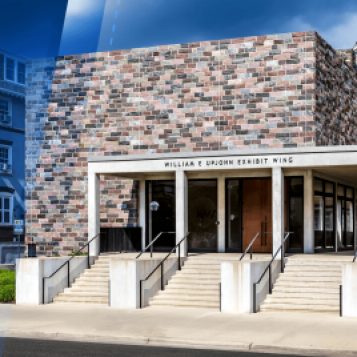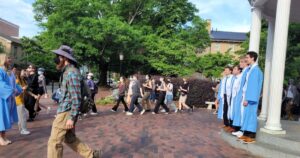The University of Michigan, in collaboration with the Kelsey Museum, is embarking on a series of groundbreaking archaeological expeditions, thanks to a partnership with Steve Klinsky, founder and CEO of New Mountain Capital. Klinsky, an alumnus of the university, expressed his enthusiasm for supporting this initiative, stating, “I am proud to partner with the University of Michigan and the Kelsey Museum to launch the five Klinsky Expeditions seeking breakthroughs in archaeology, along with educational outreach.”
The Kelsey Museum, which has been a fixture since 1928, boasts a collection of over 100,000 artifacts from regions surrounding the Mediterranean, including significant holdings from Egypt, Greece, and Italy. Open to the public from Tuesday through Sunday with no admission fee, the museum serves as a resource and educational center for the university community, as well as K-12 students, educators, and the general public.
The Five Klinsky Expeditions
Battlefields of the Punic Wars
This project aims to uncover the lost battlefields from the conflict between Rome and Carthage, a turning point in the history of the Mediterranean. The research will initially focus on locating an ancient battleground, with subsequent studies examining the soldiers’ DNA, health, diet, and weaponry. Michigan archaeologists will collaborate with local experts to make significant contributions to these findings.
U-M Project Lead(s): David Stone
Finding Ancient Napata: Lost City on the Nile
Targeting the ancient city of Napata along the Nile in Sudan, this expedition will explore a city known for its essential temples and pyramids. Once the capital of the Kushite kings who ruled Egypt as the 25th Dynasty, the exact location where its inhabitants lived and worked had remained a mystery until recently. The team, working alongside Sudanese archaeologists, aims to offer a comprehensive reconstruction of this historical city.
U-M Project Lead(s): Geoff Emberling
The Northern Masters of Eurasia: Nomadic Elites at the Dawn of the Silk Roads
In Kazakhstan, the team will delve into burial sites of Eurasian nomads who were instrumental in establishing early trade networks like the Silk Roads. Despite historical stereotypes, these nomads were creators of sophisticated societies, and the project seeks to illuminate their roles in early globalization through the exploration of their tombs.
U-M Project Lead(s): Bryan Miller
Dust, Beads and Genes: Pinpointing Our African Origins with Ancient DNA
This project will travel across Africa to analyze ancient human DNA from adornments and site sediments, aiming to clarify the origins of humanity on the continent. Although it is known that humans originated in Africa, pinpointing the exact location remains elusive. The team will employ cutting-edge DNA extraction techniques to address this question.
U-M Project Lead(s): Brian Stewart
A Moonshot Under Water: Discovering Ancient Hunting Sites Beneath the Great Lakes
Utilizing advanced submarine technology, researchers will investigate an underwater region in Lake Huron, preserved for over 11,500 years. This area, often compared to Pompeii, features some of the oldest known hunting structures globally, promising to provide a detailed view of a previously unseen ancient landscape and culture.
U-M Project Lead(s): John O’Shea
To explore more about Archaeology at Michigan, visit the website. For additional information on the Kelsey Museum of Archaeology, visit the museum website.





